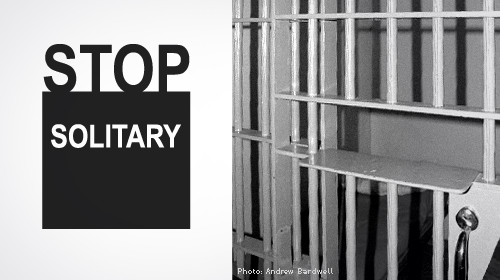
Before 1974, prison guards in Texas routinely beat the kids supposedly under their care and protection. The U.S. District Court for the Eastern District of Texas found a “widespread practice of beating, slapping, kicking, and otherwise physically abusing juvenile inmates, in the absence of any exigent circumstances, in many of the Texas Youth Council facilities.”
The Texas juvenile justice system has come a long way since the case that exposed these widespread abuses: Morales v. Turman, in which the horrific conditions in Texas were used to establish the first national standards for juvenile justice and corrections. Following this decision, Texas made a number of changes, including the prohibition of corporal punishment and all forms of inhumane treatment.
But sadly, some of the same problems exposed in Morales exist today.
A slew of promising bills were filed this legislative session. These bills, if passed, would make Texas a national leader in the effort to protect kids from the devastating effects of solitary confinement. The ACLU agrees with experts and child psychiatrists around the country that youth should not be subject to solitary confinement. If passed into law, the bills now before the Senate won’t completely eradicate youth isolation in the state, but they will go a long way towards ensuring more humane treatment for some of the most at-risk children in Texas.
Let’s turn now to the problems Texas desperately needs to fix – and the bills that, if adopted, would go a long way toward improving the conditions of youth solitary.
Current Law Allows for the Arbitrary and the All-to-Frequent Use of Solitary Confinement
Current law has led to the continued abuse and overuse of solitary confinement in Texas.
Kids in Texas were subject to 37,071 seclusions in county juvenile facilities in 2011. Thousands of these seclusions lasted 24 hours or longer. Recognizing that solitary confinement is an extreme punishment, Senate Bill 1517 provides that a child in a juvenile facility may not be placed in disciplinary seclusions in excess of four-hours unless the seclusion is the result a limited number of defined offenses. Senate Bill 1357 requires county jails to adopt similar standards for inmates younger than 18 years old. It provides that a child may not be held in seclusion or “administrative segregation” for longer than 4 hours unless the confinement is the result of an assault, escape, or an attempted assault or escape by the prisoner.
Kids Are Locked Alone Before They Are Even Convicted
County jails need to take age into consideration before subjecting a child to solitary confinement. Senate Bill 1357 requires county jails to evaluate the suitability of using less restrictive means of confinement for a prisoner who is younger than 18 years of age. Children are different than adults and should be treated as such.
Any Time in Solitary Can Be Psychologically Devastating for Anyone, and Particularly for Kids
We need to better safeguard the mental-health of children in solitary confinement. Senate Bill 1357 provides that children in county jails placed in disciplinary seclusion for 30 minutes or longer complete a therapeutic self-analysis assignment. Before subjecting a child to solitary confinement the Bill would require county jails to have a mental health professional evaluate the inmate and evaluate the suitability of using less restrictive means of confinement for prisoners with mental health issues. For children in juvenile facilities, Senate Bill 1517 requires similar measures.
No child should be subjected to psychological torture and one of the biggest obstacles to implementing meaningful reform in the area of youth solitary is the lack of information available on the policies and practices of solitary confinement in Texas. Two bills, House Bill 1266 and Senate Bill 1003, will help overcome this obstacle by requiring a study and report on state solitary practices so the public knows what’s being done in its name.
For Texas, progress will be a simple two-step that involves the present and the future of youth solitary in the Lone Star State.
- Step one: make changes to current policies and practice that we know are harmful to children held in solitary.
- Step two: gather information surrounding the use of youth solitary in Texas. This information will help us better understand what further reforms are necessary to address the harms of solitary, and how we can reduce Texas’s dependency on the dangerous on costly practice.
States around the country are waking-up to the reality that children and vulnerable populations, such as persons with mental illness, do not belong in solitary. It’s time for Texas, now in our 83rd legislative session, to join this charge. A lot is riding on these bills, namely our children’s futures.
Learn more about solitary confinement and other civil liberty issues: Sign up for breaking news alerts, follow us on Twitter, and like us on Facebook.


